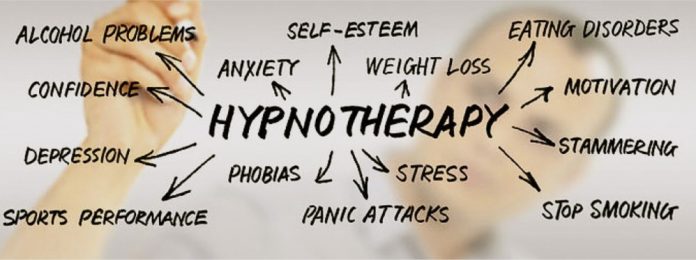Hypnotherapy and psychological counseling offer two very different ways to heal from emotional and mental health issues. Since there is no “one size fits all” type of treatment (different approaches work for different people and different issues), it’s important to be aware of the options for healing.
“There is a vast difference between psychotherapy and hypnotherapy,” says Grace Joubarne, a Certified Clinical Hypnotherapist who was trained at The Pacific Institute of Advanced Hypnotherapy. “Psychotherapy is therapist-centered and calls for intervention at the conscious or thinking level. A psychologist or psychiatrist will listen to a patient, make a determination as to what they feel the problems are, provide a diagnosis, and offer treatment that is consistent with that diagnosis.”

This hypnotherapist developed a successful weight management program that incorporates hypnotherapy, cognitive behavior therapy, and nutritional advice. Joubarne practices medical and dental hypnotherapy, and assists self-healing from emotional issues such as persistent sadness and depressive feelings, anger, frustration, feelings of low self-esteem and low self-worth.
How Hypnotherapy is Different Than Psychotherapy or Counseling

Hypnotherapy requires no diagnosis or talk therapy, and no antidepressants or other presecription medications. It is entirely client-centered. Hypnotherapy is based on the premise that the “inner knower” has the answers to various problems. To heal, it’s believed that people need to access their deepest mind or subconscious.
“Hypnotherapy is dignified, relaxing and empowering,” says Joubarne. “The client is always in full control of the process. In fact, no healing can occur unless and until clients are willing to explore their issues and release their attachments.”
The results of hypnotherapy are said to be permanent, and many describe the resolution of emotional and mental health issues as a “gentle” process. Hypnotherapy is cost-effective because it doesn’t involve long talk-therapy sessions. This self-healing modality is free from the stigma of a psychological diagnosis, which can be empowering for some clients.
How to Recognize a Competent Hypnotherapist

A hypnotist should have a minimum of 60-100 hours of basic hypnosis training, which allows them to help clients stop smoking, manage weight issues, improve sports performance, and find stress relief.
However, to help clients with significant emotional and mental health issues — and help release the underlying causes of persistent negative feelings, habits or fears — a hypnotist must have significant additional training. Hypnosis, which is a state of altered consciousness or deep relaxation, in and of itself can accomplish little. It is the hypnotherapy that’s performed while the client is in this state that helps the subconscious mind cope and heal from distress.
Hypnotherapy can offer benefits that psychological counseling or prescription medications cannot, depending on the client, the type of emotional or mental health issue, and the hypnotherapist.


















